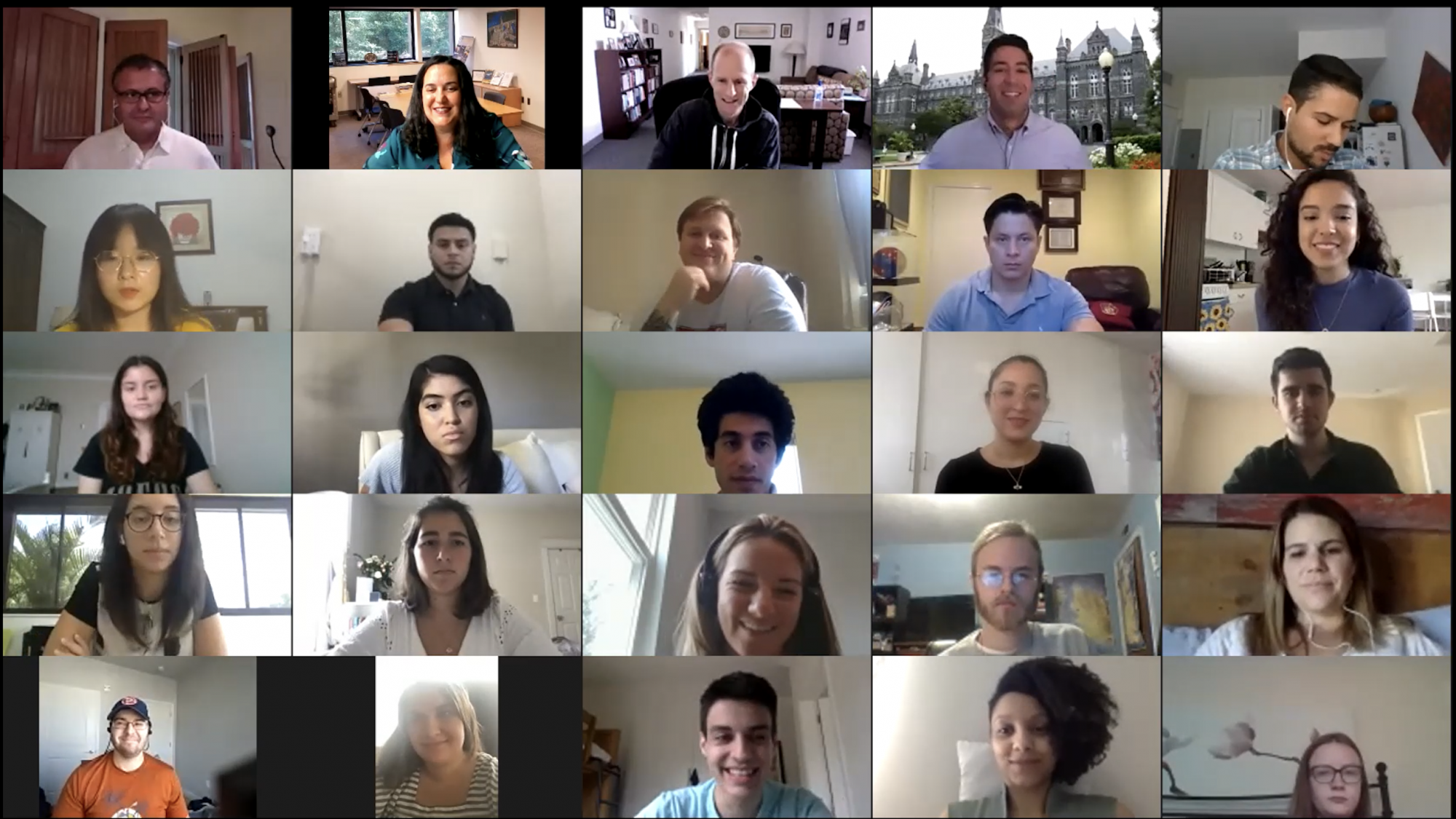The Center for Latin American Studies has had a wonderful semester engaging with our students and the Washington D.C. community virtually. Throughout the last months, CLAS sponsored or co-sponsored six engaging events with speakers from all over the U.S. and Latin America focusing on topics such as race and policing in Latin America, women’s leadership in the region, gang violence, and migration. We are excited to share recordings of most of these events below. All of these videos can also be found on our Facebook. CLAS has also been keeping close track of how the COVID-19 pandemic is affecting Latin America and the Caribbean with our project, the Latin America and Caribbean COVID-19 Map, LACCOM.
Thank you to our CLAS community, which continues to show its enthusiasm and commitment to the region, for staying engaged despite unprecedented times.
